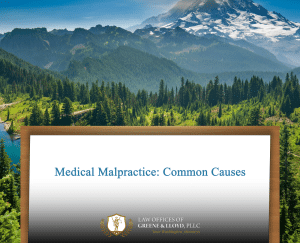## Understanding the Impact of Personal Injury Lawsuits
Personal injury lawsuits serve as a legal avenue for individuals who have suffered harm due to the negligence or intentional actions of another party. These cases may arise from various situations, including car accidents, slip and fall incidents, workplace injuries, or medical malpractice. The cornerstone of personal injury lawsuits is the concept of liability, which determines who is responsible for the injury and the damages that stem from it. As plaintiffs navigate these complex waters, they often face not only legal barriers but also significant emotional challenges.
The personal injury claims process is multifaceted, requiring the injured party to gather evidence, file claims, negotiate settlements, and potentially go to trial. But apart from the procedural aspects, personal injury lawsuits can be a source of intense emotional distress. Victims often experience feelings of anxiety, fear, anger, and even depression as they cope with their injuries and the repercussions on their day-to-day lives. Understanding both the legal and emotional nuances of these cases is crucial for anyone contemplating pursuing a claim.
Ultimately, personal injury lawsuits are not just about financial compensation; they encapsulate a profound emotional journey for the injured party. This emotional toll underscores the importance of having skilled legal representation that can navigate the complexities of these cases while providing the necessary support to clients dealing with emotional trauma.
## The Significance of Personal Injury Lawsuits
Understanding why personal injury lawsuits matter requires a deeper look into their purpose and implications for society. Fundamentally, these lawsuits serve to hold wrongdoers accountable for their actions, encouraging safer practices in various industries. By pursuing justice, victims can secure financial restitution for their medical bills, lost wages, and pain and suffering, fostering a sense of closure and healing.
Furthermore, personal injury lawsuits play a significant role in shaping public policy and safety regulations. When businesses and individuals face the financial repercussions of negligence, it often spurs them to adopt safer practices, ultimately benefiting the general public. For example, a high-profile case involving inadequate safety measures in a workplace may lead to policy changes that safeguard future employees. This ripple effect highlights the broader importance of individual actions within the legal framework.
Moreover, the emotional impact of personal injury lawsuits is particularly critical to consider in this context. By validating the experiences of victims, these cases can create an environment where individuals feel empowered to speak out against injustice. This advocacy not only helps the victims of today but also sets a precedent for future cases, cultivating a culture of accountability and empathy.
## Emotional Strain Inherent in Personal Injury Lawsuits
The emotional toll of personal injury lawsuits can be profound, affecting not only the victims but also their families and support networks. As individuals navigate the complexities of their cases, common feelings of fear, helplessness, anger, and frustration often emerge. The lengthy process of litigation can exacerbate stress levels, as plaintiffs may have to recount traumatic experiences repeatedly throughout depositions and court hearings.
Additionally, personal injury can manifest in various emotional responses, including post-traumatic stress disorder (PTSD), anxiety, and depression. The trauma of the injury itself, coupled with the uncertainty of the legal process, can create an overwhelming sense of despair. Emotional responses can lead to withdrawal from social activities, strained relationships with family and friends, and a general decline in mental health. This makes it essential to address emotional well-being alongside legal strategies.
Moreover, coping with an injury often comes with a significant lifestyle change, further complicating the emotional landscape. Victims may find daily tasks increasingly challenging or may be confronted with long-term disabilities, which can lead to feelings of loss or identity crisis. As the emotional strain builds, having a support system—including skilled legal representation—becomes paramount, as it can provide not only guidance through the legal processes but also emotional support.
## Navigating the Legal Framework of Personal Injury Lawsuits
The legal framework surrounding personal injury lawsuits is designed to establish the standards for negligence, liability, and damages. Understanding these components is essential for anyone involved in such cases. Negligence is often a key element, requiring the victim to demonstrate that the defendant failed to fulfill a duty of care, leading to the injury. This standard varies based on the circumstances but typically involves proving that the defendant’s actions directly caused the accident.
Following the identification of negligence, the concept of liability must be evaluated. Liability determines who is legally responsible for the injury and can involve multiple parties, including individuals, corporations, or government entities. Establishing this liability can be incredibly complicated, and victims may find that competing interests emerge from various stakeholders, particularly when large corporations are involved. This makes understanding the nuances of each case vital for achieving a favorable outcome.
Damages, the final element, refer to the compensation sought by the victim for their injuries. These can be categorized as economic, which includes quantifiable losses such as medical bills, or non-economic, which covers more subjective elements like pain and suffering. The legal system strives to appropriately quantify these damages, yet the emotional impact of an injury often complicates the evaluation. A sensitive approach to both the legal and emotional facets of damages ensures that victims receive fair compensation reflective of their experiences.
## Real-Life Cases: The Emotional Journey of Personal Injury Lawsuits
Real-world examples of personal injury lawsuits often illuminate the emotional toll associated with this legal avenue. Consider a case involving a car accident where the victim suffers severe injuries, leading to multiple surgeries and an extended recovery period. The emotional aftermath of such an incident can be significant. Not only does the individual grapple with pain and the looming uncertainty of future medical issues, but they also may confront the reality of lost income and the associated financial stress.
In another instance, a workplace injury may lead to not only physical limitations but also mental health struggles. The individual may face anxiety about returning to work, fear of job loss, or worry about their ability to support their family. These emotional challenges are compounded by the need to engage in a legal process that can often feel adversarial and isolating. The longer these cases drag on, the more emotionally taxing they can become, underscoring the need for legal representation that understands the intricacies of such cases.
Further complicating matters are cases involving medical malpractice, where the betrayal of trust by a healthcare provider can intensify feelings of fear, anger, and disappointment. The emotional impact can lead to eroded trust in medical institutions and ongoing psychological distress, creating a cycle of sorrow that can be difficult to break. These examples illustrate that the landscape of personal injury lawsuits is fraught with emotional challenges that require not only legal knowledge but also empathy and understanding from legal professionals.
## Proactive Steps to Take During a Personal Injury Lawsuit
Taking proactive steps during a personal injury lawsuit can significantly improve outcomes for victims. Preparation for legal proceedings begins with comprehensive documentation and evidence collection. Keeping detailed records of medical treatments, expenses, and emotional struggles can provide invaluable support for any claims. Ensuring that all information is organized can greatly help attorneys build a compelling case.
It is also beneficial for victims to prioritize self-care during this challenging time. Engaging in therapy or counseling sessions can help manage emotional burdens, providing victims with a safe outlet to process their feelings. Regular communication with family and friends can foster a strong support network, allowing for emotional sharing and alleviating feelings of isolation during the legal process.
Moreover, staying informed about the legal process can help demystify the journey. Engaging with legal representatives, asking questions, and researching relevant laws can empower victims. Knowledge about one’s case can instill a sense of control amidst the emotional chaos that often accompanies personal injury lawsuits. The proactive approach not only assists attorneys but also promotes mental well-being, nurturing a balanced state while navigating the legal waters.
## Common Pitfalls in Personal Injury Lawsuits
While pursuing personal injury lawsuits, victims often encounter several common pitfalls that can complicate their cases and emotional well-being. One critical mistake is underestimating the significance of timely documentation. Failing to keep organized records of medical treatments, accident details, and emotional trauma can weaken a case and make it challenging to seek fair compensation. Vigilance is required to ensure that no critical details are overlooked as the case progresses.
Another frequent error involves engaging too early with insurance companies without legal representation. Victims may unintentionally provide statements that undermine their claims, leading to reduced offers of compensation or even claim denials. Insurance adjusters are trained to minimize payouts, and victims may feel pressured to accept settlements, which often fail to account for long-term needs associated with their injuries. Seeking legal counsel before any discussions with insurers can prevent these pitfalls from arising.
Lastly, victims may neglect their mental health amidst the legal challenges, failing to recognize the importance of emotional well-being during this critical period. Ignoring mental health can exacerbate the emotional strain and affect decision-making, which may ultimately impact the legal outcome. Working with mental health professionals and leaning on support networks can ease emotional burdens and contribute to a holistic approach to navigating personal injury lawsuits.
## When to Seek Legal Counsel for Personal Injury Lawsuits
The decision to consult an attorney during a personal injury lawsuit can be critical to achieving a favorable outcome. Individuals are often unsure of when to seek legal representation. In general, victims should consider consulting an attorney if they believe any negligence occurred, particularly when injuries are severe, long-term, or carry significant emotional repercussions. Legal professionals can clarify the nuances of the case and provide sound legal guidance.
Additionally, if insurance companies are involved, it’s typically wise to engage an attorney quickly. Insurance adjusters may attempt to minimize payouts, and having legal representation can alleviate pressure and create a buffer between victims and the often complex negotiation process. Attorneys understand how to navigate insurance claims and can advocate for fair compensation based on the full scope of the injuries sustained.
Moreover, if the case is especially contentious or likely to go to trial, early consultation with an attorney can be invaluable. The complexities surrounding trial litigation demand specialized knowledge and skills, which seasoned attorneys possess. Early involvement allows legal professionals to strategize effectively, maximizing the chances of a successful outcome while also providing emotional support throughout the process.
## The Advantages of Legal Representation in Personal Injury Lawsuits
Legal representation plays a crucial role in navigating the complexities of personal injury lawsuits. Having an experienced attorney can provide victims with access to in-depth legal knowledge regarding their rights, the claims process, and potential compensation avenues. This knowledge allows victims to make informed decisions about their cases while minimizing the emotional toll often associated with navigating the legal landscape alone.
Furthermore, skilled attorneys are adept at gathering evidence, negotiating on behalf of their clients, and dealing with insurance companies. From medical records to witness testimonies, legal professionals know how to compile compelling evidence that bolsters claims and supports victims emotionally. They can take the burden off the victim, enabling them to focus on healing rather than becoming overwhelmed by the legal process.
Legal representation also lends credibility to a case. Insurance companies and opposing parties are more likely to take claims seriously when they are handled by legal professionals. Ultimately, having a skilled attorney advocating for rightful compensation can significantly increase the likelihood of a favorable settlement or verdict, thereby alleviating both the financial and emotional challenges that victims face.
## How Law Offices of Greene & Lloyd, PLLC Can Assist
The Law Offices of Greene & Lloyd, PLLC, stand out as a premier choice for individuals navigating personal injury lawsuits throughout Washington State. With a profound understanding of the emotional toll these cases can inflict, the firm prioritizes client well-being while delivering exemplary legal services. Their team is well-versed in personal injury law, ensuring that each case is handled with the utmost care and diligence.
At Greene & Lloyd, clients benefit from personalized service tailored to their unique circumstances. The legal team strives to create an empathetic environment where clients feel heard and supported during challenging times. Clients are empowered to express their feelings and concerns, which helps foster a holistic approach to handling not only the legal aspect but also the emotional dimension of their cases.
Moreover, the firm employs a comprehensive strategy for personal injury cases, focusing not just on legal merits but also on the emotional experiences of clients. From the initial consultation through resolution, clients can count on Greene & Lloyd for strategic guidance, emotional support, and a steadfast commitment to securing the compensation they deserve. This combination of legal acumen and compassionate service makes Greene & Lloyd an exceptional choice for those pursuing personal injury lawsuits.
## Frequently Asked Questions About Personal Injury Lawsuits
## Additional Resources for Personal Injury Lawsuits
Exploring additional resources can significantly improve an individual’s understanding of personal injury lawsuits and the emotional challenges they pose. Victims can find valuable information through legal aid organizations, which often provide guidance on navigating the claims process, understanding rights, and accessing available support. Many of these organizations offer free consultations and educational materials that can empower individuals in their legal journeys.
Additionally, support groups for personal injury victims can provide emotional assistance and a sense of community. These groups often facilitate discussions among individuals who have experienced similar hardships, allowing victims to share coping strategies, receive emotional support, and gain insights from others who have successfully navigated the legal landscape. Joining a support group can mitigate feelings of isolation and provide solace in the midst of emotional challenges.
Online legal resources, including articles, blogs, and videos from reputable law firms, can also serve to inform and empower victims. By staying updated on current laws, case outcomes, and emotional support strategies, victims can equip themselves to make informed decisions regarding their personal injury lawsuits. These resources complement professional legal assistance and can make a significant difference in the emotional journey of navigating personal injury claims.



